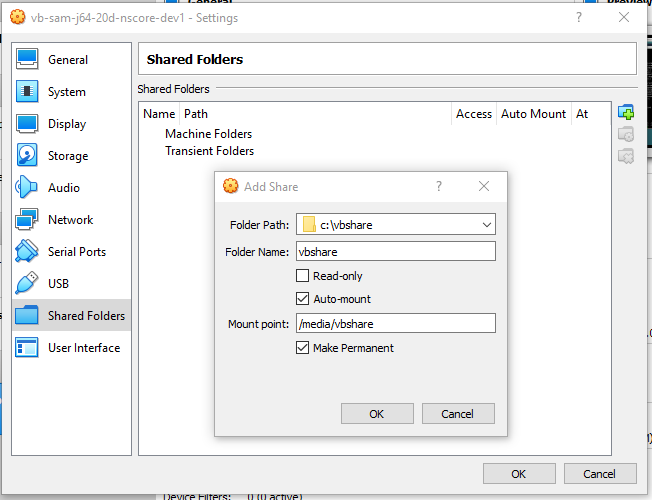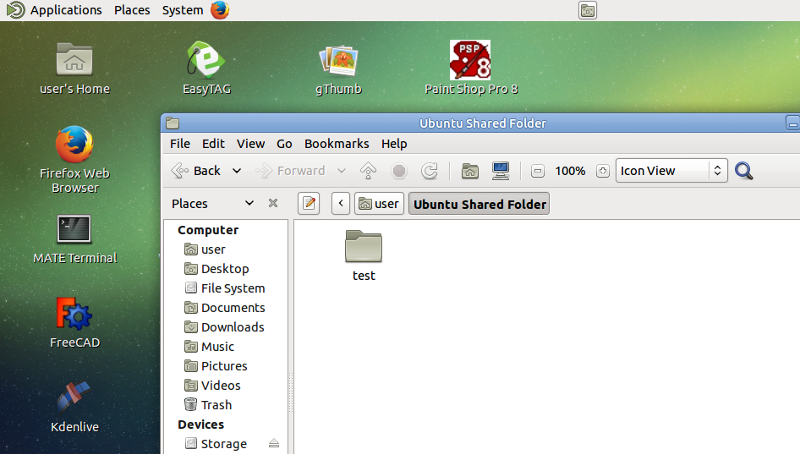


When you put the mount command in /etc/rc.local, so it's mounted at startup, you can't use the short notation for your home folder. Sometimes, the share does get mounted because the GA check for it when they are loaded upon boot, but it's very flaky, meaning it doesn't work most of the time. Using /etc/fstab has little effect, because that file is processed before the SF module is loaded and will fail to mount the share. The Shared Folders service should mount them automatically, but that doesn't always happen. If you want to have it mount automatically upon each boot, put the mount command in /etc/rc.local (Debian based distro's), or whatever script is run at the end of the boot process. To mount the SF so that you are the owner of the files, use this command:Ĭode: Select all Expand view Collapse view sudo mount -t vboxsf -o rw,uid=1000,gid=1000 share ~/host The User Manual also notes the options compatible with the Shared Folders. See the man page of mount for more info on which options you can use.

You can use multiple options with one parameter, seperate the values with a comma. Options are passed on with the -o parameter. This can be changed by adding some mount options. Note that with this, the default mount options are used and all files are owned by root. I will use ~/host for the mount point.Ĭode: Select all Expand view Collapse view sudo mount -t vboxsf share ~/host Create a folder where you will mount it on. Now that you have defined a SF, it's time to mount it. In this howto, I will use the name share. Make sure that the name of the share doesn't contain any illegal characters like white spaces. Click on the Add button and browse for a folder you want to share. Open the VM Settings and go to Shared Folders. To access them, you have to define at least one in the VM settings. After installing the Guest Additions, you can use the Shared Folders Functionality.


 0 kommentar(er)
0 kommentar(er)
